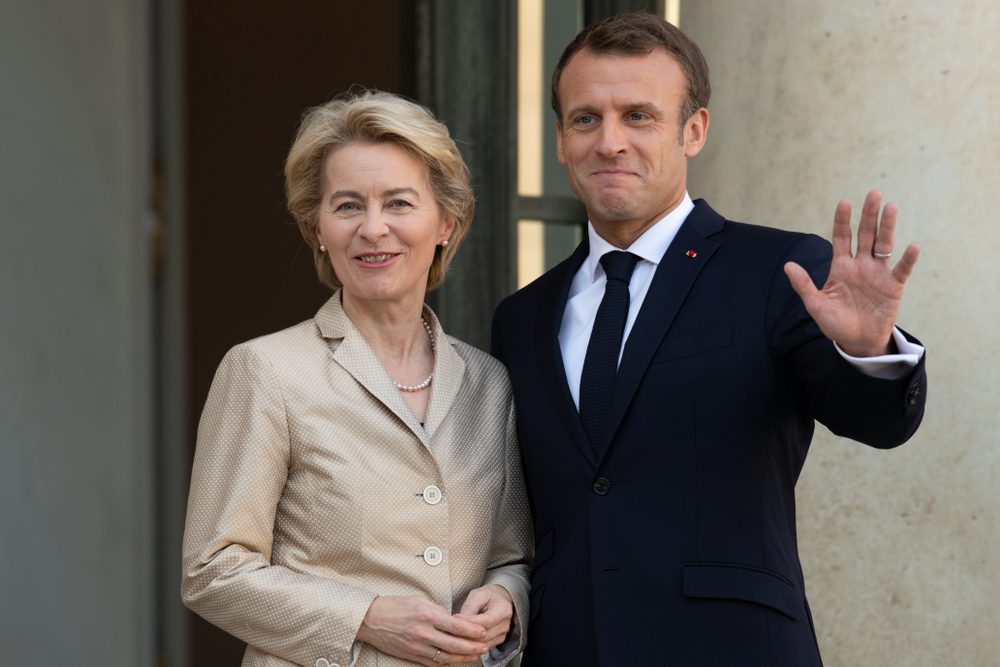
The closing of the “Conference on the Future of Europe” coincided with Europe Day on Monday, May 9th. On this occasion, the President of the Commission Ursula von der Leyen presented a report resulting from the consultation carried out by the Union over the past year, in an attempt to simplify the functioning of the institutions and make decisions more transparent. She gave a speech in which she showed herself to be in favour of a revision of the unanimity rule within the Union, in order to move Europe forward more quickly.
“I have always argued that unanimity voting in some key areas simply no longer makes sense if we want to be able to move faster,” she told the European Parliament in Strasbourg. Emmanuel Macron, who has just been re-elected as President of the French Republic, also gave a speech supporting Ursula von der Leyen’s guidelines. He said he was in favour of changes to the European treaties to make the EU more “efficient and independent.” He explained that he wanted to continue “to generalise qualified majority voting in decisions.”
The same was echoed by the German Minister of State for Europe and Climate Anna Lührmann: “For us, as a federal government, it is extremely important that there are fewer veto options in foreign policy, which will provide more opportunities for action,” she argued. In her view, “these possibilities already exist in the current treaties.” A few days ago, Italian Prime Minister Mario Draghi also spoke out in favour of this development. He believes that the EU’s current processes are “inadequate” to deal with the war in Ukraine, saying that it marks “the beginning of a path that will lead to the revision of the treaties.”
The online platform set up by the EU for the conference collected almost 19,000 ideas on the future of Europe, of which 49 were retained in the final text. The abolition of the unanimity rule is one of them.
The debate comes at a particularly sensitive time when the question of applying new sanctions against Russia is coming up against the objections of three European states, including Hungary. The proposal to generalise qualified majority voting is far from unanimous among European states. As of Monday, 13 of the 27 states have already expressed their opposition to this project, including Poland, Romania, Denmark, Sweden, and Finland.
The number of areas for which unanimity is required has been considerably reduced as treaties have been changed over the years. Sectors such as the internal market, the free movement of workers, agriculture, culture, and education are already subject to qualified majority voting, but some matters still require the agreement of all 27, particularly in the area of foreign and security policy. This is also the case for taxation and social and budgetary policy.
The move to qualified majority voting requires the agreement of 15 of the 27 Member States for a decision or text to be validated—more precisely, 55% of Member States representing at least 65% of the European population. For its supporters, this formula would have the advantage of encouraging compromise and discussion—an isolated state would then have no chance of seeing its point of view succeed, whereas the unanimity rule makes the veto of a single state against 26 effective. But the move to qualified majority voting undoubtedly represents a dilution of state sovereignty and a loss of democracy for the people of Europe. In the long term, this measure risks fuelling resentment against the Union, which may find itself imposing measures that have been rejected by several states.
It remains to be seen how the repeal of the unanimity rule will be adopted—if at all. Since the adoption of the Lisbon Treaty, the revision of the institutions can be adopted by a simple majority in the European Council.
